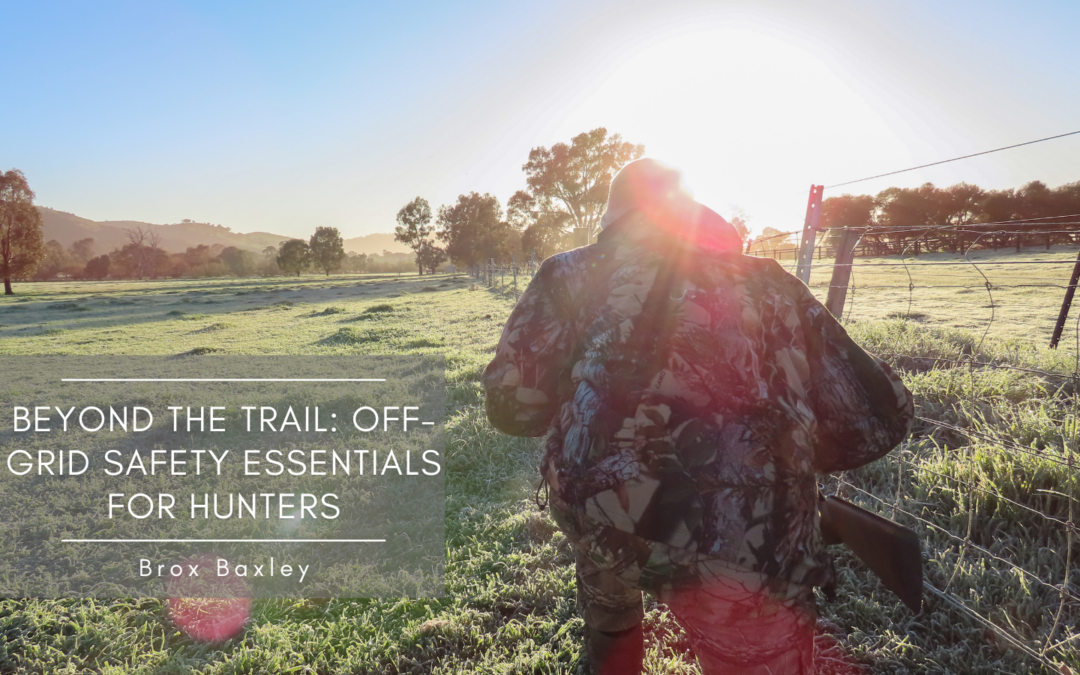Hunting off the grid offers a unique sense of freedom and connection to nature, but it also comes with its own set of risks. Navigating remote, untamed wilderness requires careful preparation and an awareness of your surroundings. To ensure your safety while hunting off the grid, here are some essential tips and gear to keep in mind.
1. Plan and Share Your Route
Before heading into the wilderness, planning your route is paramount. Study the terrain and the area’s topography, identifying potential hazards such as cliffs, bodies of water, or dense foliage. Let a trusted friend or family member know your route and estimated return time. This is crucial in case of emergencies, as it provides others with a starting point for rescue operations if needed.
2. Navigation Tools
When hunting off the grid, traditional trails and landmarks may not be available. Therefore, carrying a reliable navigation system is a must. A GPS device with preloaded maps is essential, but always have a backup, like a compass and paper map. These tools don’t rely on batteries and can be lifesavers in case of electronic failure. Make sure you’re familiar with how to use them before heading into the field.
3. First-Aid and Emergency Kit
Accidents can happen, and when you’re off the grid, help may be miles away. A well-stocked first-aid kit is essential. Your kit should include the basics like bandages, antiseptics, and pain relievers, as well as specialized items such as a tourniquet, splints, and a snake bite kit (if applicable). Also, pack emergency items like a whistle, a fire-starting kit, and a signal mirror in case you need to alert others to your location.
4. Fire and Shelter
Surviving in the wild requires the ability to build a shelter and start a fire, especially in unpredictable weather. Pack fire-starting tools such as waterproof matches, a lighter, or a ferro rod. When choosing shelter options, a lightweight tent or emergency bivy bag is a good choice for quick setup. Make sure you have insulation for cold weather, and always carry a blanket or sleeping bag rated for the climate.
5. Water and Hydration
Access to clean water is critical when you’re off the grid. Always carry enough water to last for the duration of your hunt, but also bring along water purification tablets or a portable filter in case you need to replenish your supply from natural sources. Never drink from streams, lakes, or rivers without treating the water, as it may contain harmful bacteria or parasites.
6. Food and Snacks
Pack enough high-energy, non-perishable food to sustain you throughout your hunt. Trail mix, jerky, energy bars, and freeze-dried meals are excellent options. It’s also a good idea to have a small stove or portable cooking system in case you need to cook your game or prepare meals on the go.
7. Predator Awareness and Self-Defense
When hunting in remote areas, it’s important to be aware of the potential for encounters with predators. Carry deterrents such as bear spray and know how to use it effectively. If hunting in areas with large predators (like bears or mountain lions), be extra cautious. Making noise while moving through the wilderness can help you avoid surprising any wildlife.
Conclusion
Hunting off the grid can be an incredibly rewarding experience, but safety should always come first. By planning your route, carrying the right gear, and being prepared for emergencies, you can confidently enjoy your off-grid adventure. Whether you’re tracking big game or simply enjoying the solitude of nature, these safety essentials will help ensure that your hunting trip is both successful and safe.

